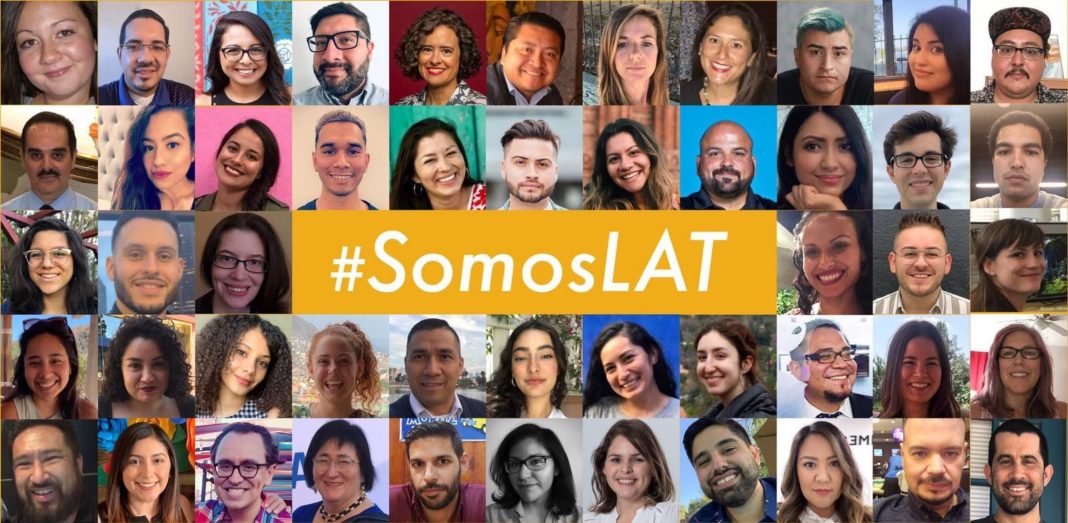They want this newspaper to reflect the people they serve and the communities they cover
More than 60 Latino journalists from the Los Angeles Times, in an open letter, demanded greater Latino representation in their newsroom.
The petition is part of a campaign launched by Latino employees grouped together in the Latino caucus of their LA Times Guild, and directed at billionaire owner Patrick Soon-Shiong who bought this newspaper in 2018.
“There are more than 500 employees in the newsroom, but we are only 65 Latinos, 12.9%, when almost 50% of the population of Los Angeles County is Latino”Said Esmeralda Bermudez, who has been a reporter for the LA Times for 12 years.
“We do not live in Montana or Idaho but in Los Angeles with a beautiful, large, complicated and diverse community, and any business that sells cars or newspapers must have diversity not only racial but also economic, educational and geographic,” said the journalist.
He commented that they have always wanted to compare the Los Angeles Times with the New York Times or the Washington Post to find out how well they are doing it, but he considered that the only comparison rule should be the angel community itself.

In the open letter, Latino journalists noted that most of their history, Los Angeles Times “has covered the Latino community in a dehumanizing way, painting us as criminals or simply ignoring uss ”.
What is more, they assured that The Times has insulted Mexicans by calling them wet backs; and to undocumented immigrants, he has called them illegal.
In addition to advocating the invasion of Latin American countries and denigrating Central Americans seeking refuge during the exodus of the 1980s.
Even today, they mentioned that The Times continues to fail by failing to reflect on staff and coverage, a region where one in two residents is Latino.
“They have neglected to serve who should be their largest audience.”
They made it clear in the open letter that for decades they have asked their managers to hire more Latinos, promote them and make them editors, but they have had no response.
Of the 109 editors and managers, only 11% are Latino.
Today nearly 80 Latino staffers at the @latimes sent a letter to our owner and managers demanding a newspaper that truly reflects our community, which is half Latino, and gives equal opportunities to Latino staffers. #SomosLAT Read @LATCaucus letter here: https://t.co/7RmMcgesVt pic.twitter.com/0uWQ3Ufh2C
– LA Times Latino Caucus (@LATLatinoCaucus) July 21, 2020
The LA Times Latino Caucus was established this July to call for a change.
“We were inspired by our African American colleagues who formed the first African American Caucus in the newspaper,” he added. And with this campaign for increased Latino representation, Esmeralda said they hope to start the conversation for the LA Times to become a news organization whose staff truly reflects the community they serve.
Among the 14 requests made to the owner and editorial managers, the following stand out: build a newsroom that reflects the demographics of Los Angeles.
“We have asked that they commit to a five-year period to hire half of Latino journalists out of the percentage of Latinos in the county“Added the reporter.
But they want those hires not just to write Latino stories. “While we are proud of the stories of our community, we can report on other topics like any other reporter,” they indicated in the display.
Specifically, they asked to prioritize hiring in departments that do not have Latinos or only one such as the 2020 Campaign, the courts, the police, crime, investigations, Latin America, Washington DC, national issues and food.
Nearly 50% of LA County is Latino. But Latinos account for 13% of the LA Times newsroom. The @latimes will not succeed until journalists reflect the communities we chronicle. #SomosLAThttps: //t.co/Q5GuosmVvE pic.twitter.com/3CrD58csoW
– Ashley Lee (@cashleelee) July 21, 2020
They asked correcting wage disparities for Latinos and other minority journalists as well as for women whose incomes remain far below those of their white counterparts.
They also demanded to create a path for Latinos to advance to columnists, critics, editors, and managers.
They asked to ensure that in the next three years, the hiring of public universities with large populations of Latinos such as Cal State, whose Latino student body is 43%, is increased.. In the last decade, of the 250 interns who have had the LA Times, only 4% of these internships have been for students from Cal State universities.
They asked to provide the LA Times publication in Spanish with the resources to succeed as a brand that represents the wide Spanish-speaking market in Southern California.
They sued to end the practice of using Spanish-speaking journalists and other multilinguals as translators without giving them additional wages or credit.
“Hire Spanish-speaking translators or compensate Latino journalists for taking the extra job of translating for peers who are monolingual,” they demanded.







